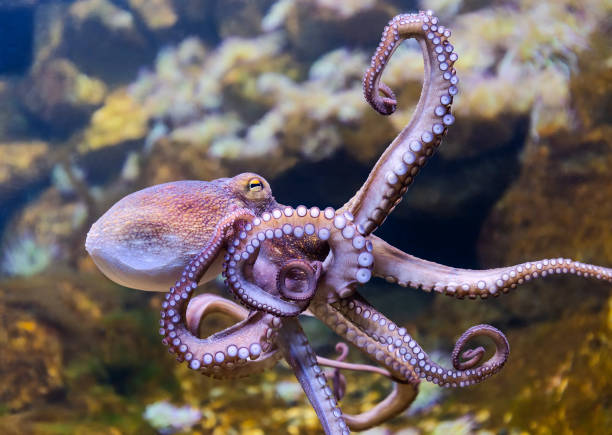The Remarkable World of Octopuses: Intelligence and Adaptation in the Sea
Octopuses, the solitary, eight-armed denizens of the ocean, have long been the subject of intrigue and fascination. From their remarkable intelligence to their exceptional adaptability, these cephalopods offer a unique perspective into the world of marine life. As we delve into the world of octopuses, we will explore their evolutionary history, examine their advanced cognitive abilities, and discuss the latest research and discoveries about these exceptional creatures.

A Look at the Evolutionary History of Octopuses
The octopus, belonging to the cephalopod class that also includes squids and cuttlefish, has a rich evolutionary history spanning more than 300 million years. These marine animals evolved from a common, shell-bearing ancestor, eventually losing their protective shells to gain greater mobility and flexibility. This evolutionary adaptation has allowed octopuses to inhabit various marine environments, from shallow tide pools to the deep sea.
Octopus Intelligence: A Confluence of Nature and Nurture
Octopuses are renowned for their intelligence. They exhibit complex behaviors such as problem-solving, tool use, and even play. Recent research has shown that octopuses possess a large brain relative to their body size and an advanced nervous system, which are indicative of their cognitive prowess. Additionally, their ability to learn through observation and experience has challenged our understanding of animal intelligence.
The Art of Camouflage: Octopuses as Masters of Disguise
One of the most captivating aspects of octopuses is their ability to change colour and texture in a blink of an eye. This is not just a simple act of disguise, but a sophisticated survival technique. Octopuses have thousands of specialized cells called chromatophores that allow them to instantly alter their appearance. This ability aids them in evading predators, hunting prey, and communicating with other octopuses.
Octopuses in Contemporary Research and Conservation Efforts
The extraordinary abilities of octopuses have made them a popular subject in scientific research. Neuroscientists are particularly interested in studying the octopus brain to gain insights into the evolution of cognition and intelligence. Meanwhile, conservationists are working to protect octopuses from threats like overfishing and habitat loss. The recent discovery of a potential new species of octopus in the deep sea has further underscored the importance of our ongoing efforts to understand and protect these unique creatures.
The Market for Octopuses: A Snapshot
The global market for octopuses, primarily as a food source, is substantial. In 2020, the octopus market was estimated at approximately $624 million. The demand for octopus as a delicacy, particularly in Mediterranean and Asian cuisines, continues to drive its market growth. However, concerns about sustainability and the welfare of octopuses in commercial fishing operations have led to calls for more ethical and sustainable practices.
In conclusion, the world of octopuses is a testament to the marvels of evolution and the diversity of life in our oceans. As we continue to unravel the mysteries of these extraordinary creatures, we gain not only a deeper appreciation for the richness of marine life but also valuable insights that could shape our understanding of intelligence and cognition. The octopus, in its solitude and strangeness, holds a mirror to the endless possibilities of life on Earth.




